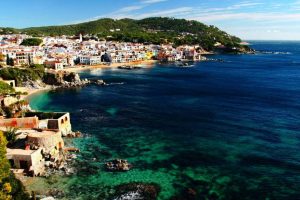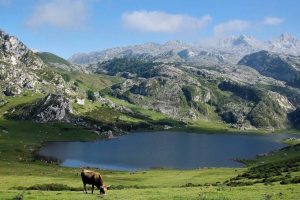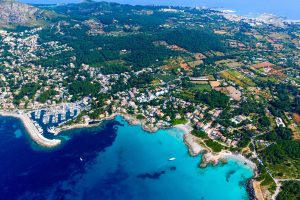Will I need a Visa to Live in Spain?
If you are an EU citizen living and entering Spain, you don’t require any visa application, you will only require to present your official ID and legal passport, and you will be good to go. Non-EU citizens will need to have a visa to enter the country. A governmental agreement exists between Spain and other foreign governments where their citizens are omitted from the visa application processes when they visit Spain for less than six months or three months. At the same time, others can stay in Spain for five days when they are in transit.
Visa application process for live in Spain as a Expat
The ministry of foreign affairs handles Spanish visas through their respective consulate offices abroad. When applying for a residence visa, this activity is done at the Spanish Consulate in your country of residence. However, there are different types of visas that are issued depending on your purpose of visiting Spain. That is why it is advisable to apply for a visa according to your needs.
Types of Spanish visas
In general there are several types of visas if you want to live in Spain.
- Student visa: People who come to study in Spain for a limited period of time.
- Non-lucrative visa: People who want to live in Spain without working, especially for people who want to retire in Spain.
- Digital nomad visa: It is a new visa that allows people to work remotely and benefit from less tax for being a digital nomad.
- Spanish golden visa: If you invest 500.000€ in Spain in a property without mortgage you can obtain this visa, which allows you to live and work in Spain.
- Entrepreneur visa, is the visa that allows you to create an innovative company in Spain.
- Self-employed visa: It is for people who want to create a business such as a bar, restaurant...
How to Apply for Spain Visa?
If you are willing to apply for Spain Visa, you must adhere to the five steps.
Fill- in the Spain Visa Application form
The first steps require you to choose and complete the correct form for a Spanish Visa you want. During this process, it is good to note that the Spain Schengen Visa application differs slightly from the format used by the Spanish national visa. Always watch out to avoid such confusion between the two forms. Complete the correct form and answer all the mandatory questions with clear and precise answers. After which, you will print the form before your print.
Go ahead and apply for your visa appointment
You need to reach out to the Spanish consulate near you at this step to make a visa appointment. The procedure can be done in three ways:
- Online
- In-person
- Through a phone call
Besides, it will also depend on the method the Spanish authority deems rights for your country of residency. Just clarify with them to know which way is appropriate for them.
Collects the documents
This is an essential part of your application. There are two required documents for every visa application: the standard and specific requirements. However, we will discuss the general document requirements.
- The right visa application form- have the right application form with all the mandatory questions answered. Pay attention to each query and answer correctly. The application form should be complete and well-signed. Failure to comply with your application will probably be declined.
- Two passport-size photos – the two biometric images should be identical and taken within the last three months. Ensure you go through the Spanish photo requirement and specifications.
- Have an original passport- check your passport's validity before applying. The passport should at least have one blank space where a consulate officer can stick the visa. Also, ensure you make copies of all passport pages containing vital information. Cover the two main pages that have your details and pages with visa stickers and stamps.
- Be ready to show flight reservation- it is crucial to show proof of dates you need to travel to Spain. This should be using a flight reservation with your name, respective dates and place of arrival and departure.
- Proof of your accommodation- This is another vital requirement that shows Spanish authorities where you will stay during your travel. You can use hotel bookings, invitation letters, or rental agreements. Either document must show your name, the premises you wish to stay in, your address, and the owners’ details.
- Have travel insurance- buying travel medical insurance before you visit the Spanish consulate for an interview is essential. This medical cover should also be viable in others Schengen countries. Also, it should cover unforeseen illnesses or incidents for a minimum of £30,000. Besides, it must run for at least seven days even when you plan to stay less than that.
- Have a medical check-up certificate - This document is issued by your doctor and should be within three months. It must confirm you are not suffering from any disease that seriously threatens public health.
- Proof funds – To be eligible in this country, you must show you have the minimum amount of money required. For instance, if your trip will last for ten days, you need proof that you can spend €70.77 daily. You prove this by presenting your bank statements to the consulate. But if somebody is willing to support your trip, you need to provide a letter of support by this person indicating how they meet your cost supported by their bank statements. If you stay long, you must submit other documents showing financial sufficient during your stay, such as rental income, pension statement if retired, or job contract.
Attend the interview
This step is one of the crucial parts of visa application. It is attended by all applicants who want to visit Spain and is conducted by a consular officer. The interview date is scheduled in advance, and Spanish authorities do not allow walk-in applications. On this day, you will submit the whole document file to the consular officer interviewing you. Just expect some questions about your application for a visa and your background.
Pay the fees
Go ahead and pay the fees as requested by the Spanish officer in the consulate. The amount is determined by your age, the visa you want, and your nationality.
Pros and Cons of Living in Spain
Living in Spain has been a dream for many people. It's a nice place with a rich history and culture. It’s also known for its beautiful beaches, favourable climate, and laid-back lifestyle.
Many people imagine nice strolls on nice-looking walkways with excellent piped music and having some drinks at open-air bars. However, like living in any country, living in Spain come with its fair share of challenges. However, still many agree that the benefits outweigh the challenges. Let's check some pros and cons of living in Spain.
Pros of living in Spain
1. Beaches
Spain has the safest and clean beaches on the continent. Spain has a long stretch of coastline that measures 5000 kilometres. The country has held the status of unspoiled beaches with a faultless environment for 30 years consecutively.
But if you don't like playing on the sand or sunbathing on the beaches, Spain still offers much more for you. You can opt to live in the central position of Spain where you can enjoy city exercises. Also, in the northern part of the country, you can stay by the lush green mountains.
2. Cost of Living
Spain's standard of living is cheaper than Denmark, Germany, and other EU countries. The living cost for a single person in this country is estimated to be€900 a month. Renting an apartment in Spain will cost you between €250 and €600 per month. Even a three-story building in the city's neighbourhoods will cost you around €700 per month.
When it comes to food, it's cost-friendly. You'll find that almost every bar and restaurant serve a plate of food for free, while wine and beer cost €2 to €3 only. Eateries and average restaurants sell lunch sets at around €10, and a mid-sized plate goes for 6 to 7 euros.
This makes it possible for you to live a comfortable life in Spain on very little cash. Even though salaries tend to be relatively small, you can afford to eat, have fun on the weekends, and often travel with what you are making.
3. Relaxed Life
Spain has hippie vibes that make most travellers enjoy. It's laid-back and very chilled; everybody loves the beauty of the environment, and no one rushes.
Even though you might feel that your pace of life is slowed down, you will embrace the carefree living way. This also stretches even to government-related things. Stay calm to see Spanish civil servants and bureaucracy working slowly. When you go to the post office or the bank, be ready to wait because no one is in a rush—likewise, in the restaurants and shops. You'll have to wait for the staff to finish attending to other businesses.
4. Healthcare
The Spanish healthcare system is ranked eighth best in the world. By Living or working in this country, you enjoy free basic healthcare access. Spain boasts reliable private and public healthcare systems. The government provides free basic healthcare to people who take part in social security. The public system of healthcare also offers retirees free access to healthcare.
If you wish to live in Spain and enjoy free basic healthcare, you need to send a proposal to Seguridad social (social security) and be issued a card of registration. You'll get this card through the post office or by visiting the health centre near you. The card will indicate your social security number. If you do not qualify for free public healthcare in Spain, you'll need to be covered by private medical insurance. No health premiums are needed, nor will you need to get back into your pocket to pay for healthcare services.
5. Security
Spain has been ranked as one of the safest countries in the world. So, your safety is fine if you want to settle in Spain. You can walk in the streets peacefully, withdraw cash, pass the time on a terrace, and use public transport without worrying about your safety. The risk of theft encountered when using public transport is low. While taxi drivers are known for their discipline and professionalism. However, it's advisable to use common sense, keep yourself safe, and take care of your belongings. Be aware of what is surrounding you as you would in other nations.
6. Spanish Social Culture
Spain has a rich culture, good social life, and a handful of fun options. Spanish people like having fun; they enjoy going out to; museums and bars, people-watch, eat tapas. They like having long dinners and lunches that can last for even two hours, family is a priority, and they'll not open businesses like restaurants on Sundays for them to have family time.
You'll experience cultural diversity in Spain. What you'll encounter in the north differs from what is on the south. Spain has several localities and historical provinces, each with their cuisine, traditions, and cultural practices. Spain has 17 regions called autonomous communities.
Despite following the constitutional law, each region has its own regionally made by-laws, and each region's powers vary.
However, despite the regions, Spaniards are very welcoming. They accept individuals from all life's walks. They are talkative and friendly; they offer visitors a chance to participate in several unique events. You just need to choose what you like.
7. Spanish Food
Even though food is seasonal in Spain, vegetables and fruits taste great. You'll love seafood; you'll get lots of fresh fish. You'll find a variety of Spanish Cheeses that are tasty, and several are accustomed to things such as Jamon that really tastes great. The flesh looks pretty nice, far better compared to UK countries.
Prices are friendly too. You'll get a wide variety of meat food for the same cost as the other products. Most foods have no or a small amount of added sugar, fruit yoghurts, and ice cream. You can even source a freshly baked cake from any render in your area. You'll get every cuisine you want and experience a healthy lifestyle in Spain.
If you are coming to Spain you have to try without a doubt their Spanish tapas, they are small plates with various typical Spanish food, Iberian ham, steamed mussels...
Cons of Living in Spain
1. Bureaucracy
If you need internet, maybe for your work or to stay connected, you need a bank account. The problems come in when you try to get the bank accounts. You'll walk up and down trying to fix this and have no one to your rescue. You'll be forced to write numerous emails with your details and get them bounced back to you. You need someone to help you get one and still wait for several weeks.
If you happen to forget your "firma electronica", the password used for internet banking, you cannot retrieve it with your phone. You'll have to visit your bank, wait for hours, and still get several papers to fill out for you to restore your electronic account.
Again, travelling to Spain is time-consuming and very frustrating and requires a lot of paperwork. You need to carry all that you think is of help, even if you wheel a fully packed cabinet. You need to be armed with your residency, driving insurance, NIE, health insurance, and other papers to ensure that you don't redo the process.
2. Confusing Time Zone
Spain is just next to Portugal, yet they have different time zones. Why this? Well, during the second world war, Francisco Franco, a Spanish dictator, temporarily shifted the time zone of Spain to align with the time zone of Nazi Germany (GMT+1). Even though it was not meant to be permanent, Spain never bothered to switch back.
3. Late meal times
You might find it not good to have your meals late, but it is not optional in Spain- they always dine late than you. Spaniards take their dinner at 9-10 pm and lunch at 2-3 pm and observe these two meals more keenly than other countries. No quick microwave meals or sandwiches. You sit down with your family and friends and get some wine while sharing your life experiences. When it comes to lunch, you don't mess!
4. Corruption
If you are thinking of purchasing properties in Spain, be keen. The wise idea is to rent an apartment or a hostel first and settle prior to engaging yourself in a deal. Spain is challenged by planning permissions whereby buildings and other structures have been illegally built, and many people have lost their savings.
5. Limited natural space
Spain has a few beautiful mountains and beautiful beaches. But beyond mountains and beaches, the abundance and variety of natural space and resources are lacking. You'll see property surrounded by fences nearly everywhere. When you walk past the main tourist parts, you'll find that parks are poorly taken care of, litter, outdated signage, and dogs' poop. Camping and hiking are not developed compared to nations like the US.
Spain tends to have an arid climate; you'll see shrubbery, dry-weather trees and bushes, untamed forests, and lush. Spain has few rivers and lakes due to changes in climate.
Top 10 Cities to Live in Spain
Spain is an excellent country to live in, with many cities. The Spanish cities are spread across all parts of the country. If you decide to live in Spain, it is good to know the top cities and what they are good at. Choose a town that will give you a fulfilling life by meeting your economic, social, and cultural needs. The cost of living, culture, lifestyle, climate, language, and safety are some of the factors considered when choosing where to reside.
Below are some of the top cities you can live in in Spain and what they are known for. Read through and identify the city that will fit your needs.
1. BARCELONA
Barcelona tops the list of high-end towns in Spain. Barcelona is the best when it comes to arts and culture. The city has various museums and holds different cultural events periodically. It is best for social groups and making new friends.
Entrepreneurship is the main economic activity for income generation. The city is advanced technologically, making it the best for digital nomads. Many tourists visit the place, raising its financial status.
It is a unique and funny city to live in as an expat and English speaker. You can go right with the culturally rich city. There are also various sports activities to participate in.
2. VALENCIA
Valencia is located on the coastal side of Spain. It has various white sand beaches where you can always spend some quality leisure time. The weather is amicable for all activities due to the Mediterranean nature of the city.
Culturally, you will learn and experience a lot. Located there is "Las Artes Y Las Ciencias" museum which you can always visit for a taste of art and culture. Social amenities such as public transport, schools, and hospitals are readily available and offer the best.
The cost of living is relatively low in the fast-growing real estate sector. The primary language used by the community in Valencia is Spanish, so having basic knowledge is essential.
3. MADRID
Although the city's cost of living is high, the life experience is unmatched, just like in Barcelona. From beautiful parks to incredible theatres, Madrid has a lot to offer regarding fun and entertainment.
The job market is competitive, with enough opportunities for the growing community. The English language has gained acceptability. For nomads, this is a great place to visit. The best cuisine spots are located in Madrid.
There are great malls where you can do quality shopping and enjoy nightlife activities.
4. CANARY ISLAND
Canary island is well-known because of having the most favourable weather conditions throughout the year. The weather is usually friendly during summer adds an advantage to the city. You will have an excellent opportunity to enjoy island views.
The city has many tourists due to its beautiful landscape, historical sites, and diverse culture. The languages used in communication are various, from Spanish and English to German.
You will enjoy taking your favourite meal and trying an unlimited number of new cuisines. Restaurants are located almost next to each other.
5. Granada
The city is on the southern side of Spain, with a taste of coastal life. It's known for its attractive artistic and architectural sites. A fun, clean environment and friendly people? Granada comes as a good fit for you. The local lifestyle is simple and easily adaptable by visitors.
The local sports clubs lit up the city, making it an excellent place for sports lovers. Participating in sports will make you blend well with the local culture and socialize. Some of the available sporting activities include swimming, biking, and tennis.
Healthcare services are easily accessible and of high quality. The standard of living is low and affordable even for students. It is a good place to achieve educational goals.
6. SEVILLA
Seville is a magical city located between beaches and mountains. It is the 4th largest city in Spain, with living standards being low and manageable. Seville has an incredible line-up of events and festivals that you will enjoy both the traditional and non-traditional sides of life. You will have an experience a feel of the warmest city in Spain!
Primary healthcare services are at par. There are various food markets and restaurants where you can always shop, dine, and drink. Also, Sevilla has attractive parts for a picnic.
7. SAN SEBASTIAN
San Sebastian offers visitors beach and urban life. There are several beaches to visit as you enjoy mountain peak views. It is a cosmopolitan area with paint of culture and fun. At San Sebastian, the natural scenes add taste to urban life. There are many activities and festivals around all year to cheer up your nights.
It is a great city to work in Spain because it offers excellent job opportunities. The service industry is fast growing, thus requiring more labour.
San Sebastian is well-known for its food and drinks. The food city has restaurants offering different well-prepared unique cuisines. If you need an urban city where you can work and still have memorable meal times and drinks, San Sebastian has got you.
8. PALENCIA
Palencia is a city with large national parks, such as Fuente Carrionas. The town also holds Cantabrian Peak and Curavacas Peak. These are great natural sites that attract a lot of people to Palencia. The many tourists that troop into Palencia has brought economic growth to the area.
It is a city with a favourable climate for farming barley, wheat, cotton, and sugarcane. Farming has led to the rise of processing industries, creating jobs and feeding residents. The economy is rapidly growing.
9. VALLADOLID
Valladolid is a city full of magic, thus the name "The Capital of the Mayan Orient". The Pisuerga River and other tourist attractions keep the city active. Some of the architectural buildings in the town are the College of San Gregorion, the Church of San Pablo, and the Cathedral.
Valladolid is not significant in size and safe for residents. Several beaches are found in the city and offer people somewhere to relax as they enjoy the white sand.
10. FRIGILIANA
Frigiliana is a small rural city in Spain. It's the best if you want to taste rural life setting. Its closeness to beaches and the presence of natural scenes make the town an excellent place to live for nature lovers. The life pace is slower than in other big cities, making it ideal for low-income earners.
The named top 10 cities to live and work in Spain have one common denominator of natural and historical scenes.
Do I Pay Taxes if I Live in Spain?
Taxes are all over, and going to Spain won't drive them away. In fact, they'll become a critical part of your new way of life in Spain regardless of whether you are a non-resident or a resident. Foreigners who become residents of Spain are subject to personal income tax but only taxed on capital gain and income obtained from any Spanish source at a flat tax rate.
Spaniard residents are taxed on worldwide income. A progressive scale of taxation is applied, although they enjoy tax relief. Whether you file Spanish taxes based on your Spanish income or worldwide income is determined by your residency status.
So, are you a non-resident or a tax resident?
To understand which taxes you'll be required to file and at what rate, you need to know whether you're a tax resident or a non-resident. This difference only works for tax matters and has no business with the permit of residence. This only allows you to live in Spain legally. You may even have a permit to live in Spain but fail to meet the requirements; in this case, you cannot be regarded as a tax resident.
To be regarded as a tax resident, you just need to meet one of the three main requirements.
- You stay in Spain for more than one hundred and eighty-three days in a year calendar, from January to December. It's not a must for the days to be consecutive.
- You have children or a spouse living in Spain.
- You have any economic interest in Spain. This means that you have a professional activity, whether self-employed or working for a Spanish company. Someone who works for a company and spends most time travelling around the globe meeting clients is exempted from 183 days of stay in Spain in a year calendar.
Taxes payable in Spain
Now that you know that you'll be subject to Spanish taxes, whether a resident or non-resident, let's check those tax obligations and how they differ.
1. Income tax
This is the most important and commonly filed tax in Spain. Spanish tax residents pay this type of tax. It's also subjected to non-residents but under the non-resident tax. Whatever you pay depends on what you generate. It means that the tax rate is progressive. The more you earn in a year, the higher the payment percentage.
When paying income tax, you consider the following:
- Your salary if you are an employee or gains if you are self-employed.
- Capital gains that come from interest and dividends.
- Benefits and pension contributions
- Income and gains obtained from renting or selling properties.
- This income must be included in your declaration of income tax.
2. Wealth tax
You'll be required to pay wealth tax if you own any property or an asset. However, this only applies to highly valued properties and other assets. Assets worth more than 700.000 euros must get taxed.
3. Value-added taxes (VAT)
This tax usually levies consumption in Spain. You'll find that it's applied to any product you source from a shop or grocery store. The rates of VAT in Spain are divided into three. The standard tax rate is 21% and applies to all taxable services and goods. Then we have reduced the VAT rate that charges at a rate of 10%. And finally, the super-reduced type has a rate of 4%.
Wrap Up about living in Spain as a Expat
Spain is one country you can’t judge with a few weeks of vacation. The country has a rich history, fantastic places to visit, and welcoming people. Besides, when you visit, be ready to enjoy incredible wine, exciting nightlife, 300 days of sunbathing, and tapas. The country is home to many expatriates who work and reside there. Also, it has an array of visa programs that make it easy for foreigners who want to visit and live.











